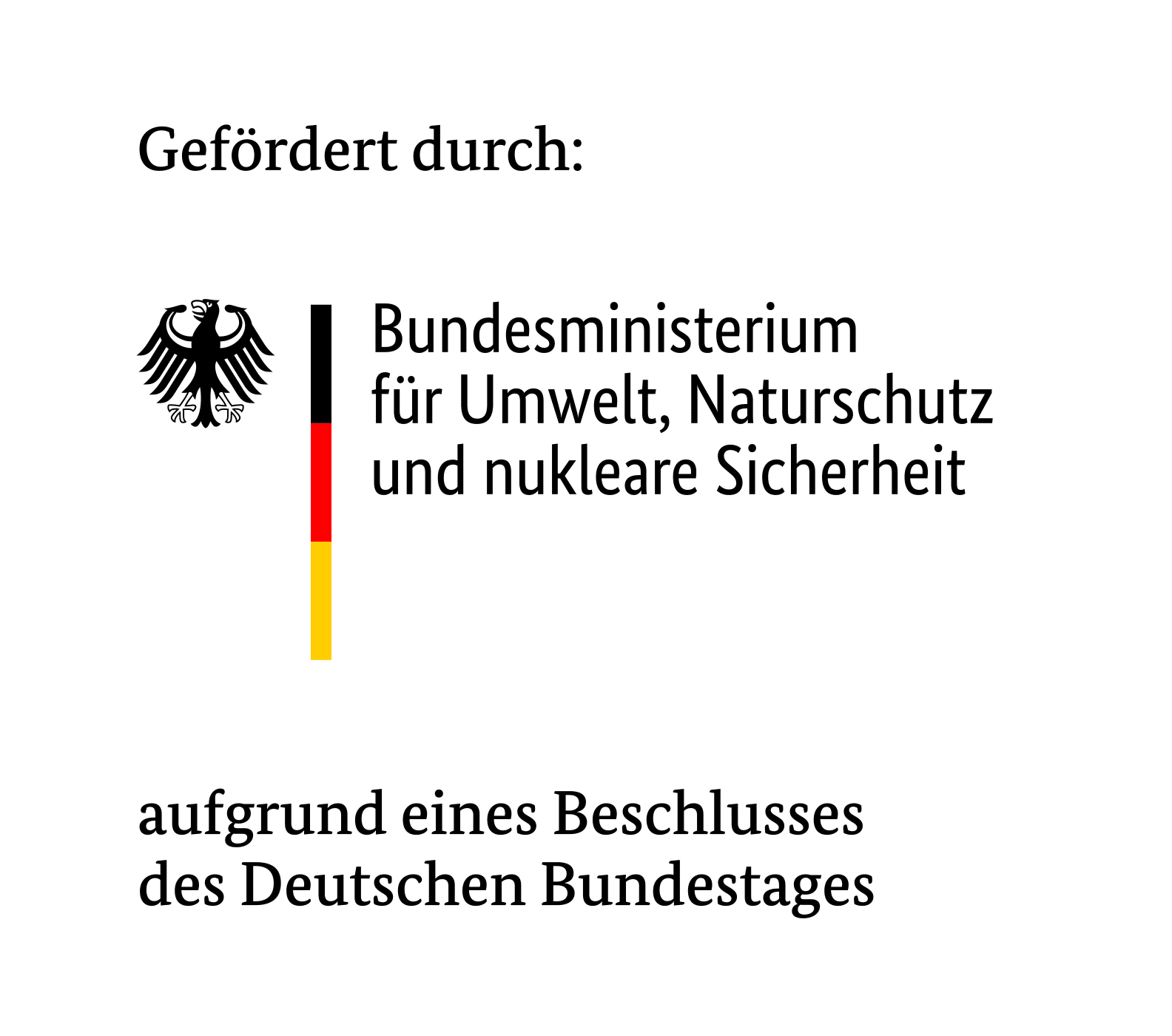The project
Shaping transformation: making the most of the opportunities to reverse climate change.
Seeing the transformation as an opportunity
The climate crisis and its potentially uncontrollable cascading effects on our natural resources are one of the greatest challenges of our time. This is why the international community set ambitious climate targets in 2015 with the Paris Agreement to limit global warming to well below 2°C by the end of the century. The EU committed to becoming the first greenhouse gas-neutral continent by 2050. Germany’s Climate Change Act establishes the national goal of greenhouse gas neutrality by 2045.
A gap still exists between political goals and current progress. The pace of actual emission reductions in Germany has so far been insufficient and the country is on a trajectory for average temperatures to rise by 3-4 degrees.
The bulk of emissions must be reduced in the energy sector and in real economy value chains and production processes. In many sectors of the German economy, stakeholders have embarked on the path to a low-emission economy. There are many flagship companies that combine innovative technologies, products and processes with far-sighted corporate management and a high level of social and environmental responsibility. But on a broad scale, the need for changes in processes, technology and products has not yet been sufficiently understood and strategically put into practice.

The necessary transformation of the economy will require enormous investments, which will be provided primarily by the financial system. Facilitating and enabling the transformation and actively helping to shape it creates extensive economic opportunities for stakeholders. However, standardised assessments for decarbonising activities are not yet suitable for practical use. This makes it more difficult to completely transition to zero-emission economic activities. At the same time, this increases the financial risks for the financed companies if the transformation comes too late or is insufficiently profound. The result: losses in value and abrupt depreciation requirements due to tighter regulation, climate-related risks or structural changes in consumer demand.
The Pathways to Paris project aims to encourage close cooperation between the real economy and the financial sector. For both, it is critical to have a thorough understanding of the transformation required to achieve greenhouse gas neutrality, to accept these requirements as a guiding principle for action and to translate them into specific, feasible investment and action plans.
Pathways to Paris: a platform for key stakeholders
In dialogue with companies and stakeholders in the financial sector, we are striving to make the transformation requirements that lie ahead viable for practical use. For this project
- action-oriented sets of measures will be developed for ten real economic sectors, building on science-based transformation pathways, proven technical reduction measures and cost curves
- companies will be enabled to design greenhouse gas-neutral business models, products and production processes and to set climate targets compatible with the Paris Agreement
- indicators will be developed for key stakeholders in the financial sector that will help them to understand and assess progress towards Paris-compatible transformation in sectors and companies and translate it into capital allocation decisions
- structured, transparent dialogue processes between the real economy and the financial sector will be facilitated through guidelines for engagement protocols
- a platform for systematic pre-competitive exchange will be created between key stakeholders, the real economy and the financial sector.
Our goals
Ten sector-based working groups will discuss how to shift business models to ensure compatibility with the Paris climate target. In each working group, a representative range of companies from the sector will be paired with representatives from the financial sector and selected academic experts.
With the support of empirical research and in dialogue with the participating companies, the current status of conventional production technologies and alternatives will be reviewed.
Project goals include user-oriented, sector-specific guidelines and the development of a web-based transformation tool. The tool will help companies from the ten focus sectors to analyse the greenhouse gas reductions and costs associated with various measures. It is intended to become the basis for decisions on corporate reduction pathways that are compatible with the Paris climate targets.
For investors, current financial indicator systems to assess transformation compatibility will be evaluated and further developed. The project goal is to integrate them into existing financial capital allocation and management processes.
Interfaces to existing frameworks will also be included, which can support the alignment of lending and investment portfolios with Paris compatibility (e.g Science Based Targets for Financial Institutions, Net Zero Asset Owner Alliance).
Finally, sector-specific structured guidelines (engagement protocols) will provide a sustainability- oriented foundation for companies and their investors to share information.
The roadmap
Phase 1: Workshops on transformation pathways & measures
- Discussions of sector-specific transformation requirements to meet the 1.5°C target
- Feedback on technical reduction measures and cost curves
- Dialogue between real economy and financial sector
Phase 2: Sets of measures & evaluation metrics
- Specific drafts of sets of measures & target metrics for companies
- Evaluation indicators and metrics for the financial sector
- Beta test: transformation tool
Phase 3: User guides & engagement protocols
- Development of guidelines for company transformation
- Development of engagement protocols for a systematic exchange of information between the real economy and financial sector on transformation requirements
Phase 4: Presentation and publication of the results
- Final conference
- Web-based transformation tool incl. practical measures, cost implications & savings potential
- Indicator systems for assessing transformation compatibility
- Sector-specific guidelines
Our motivation
Matthias Kopp, Head of Sustainable Finance at WWF Germany: “The project focuses on critical aspects of transformation in companies. We translate abstract climate targets into tangible steps. We want companies in all sectors to be able to make their business models, products and processes climate-friendly.”
Dr Nicole Röttmer, Global Lead Climate Clients & Industries PwC, comments: “More than 50 per cent of global GDP has already committed to net-zero emissions. For this to be possible, we support structural change towards a climate-neutral economy with Pathways to Paris, taking into account the individual situation of different sectors and forms of business.”


